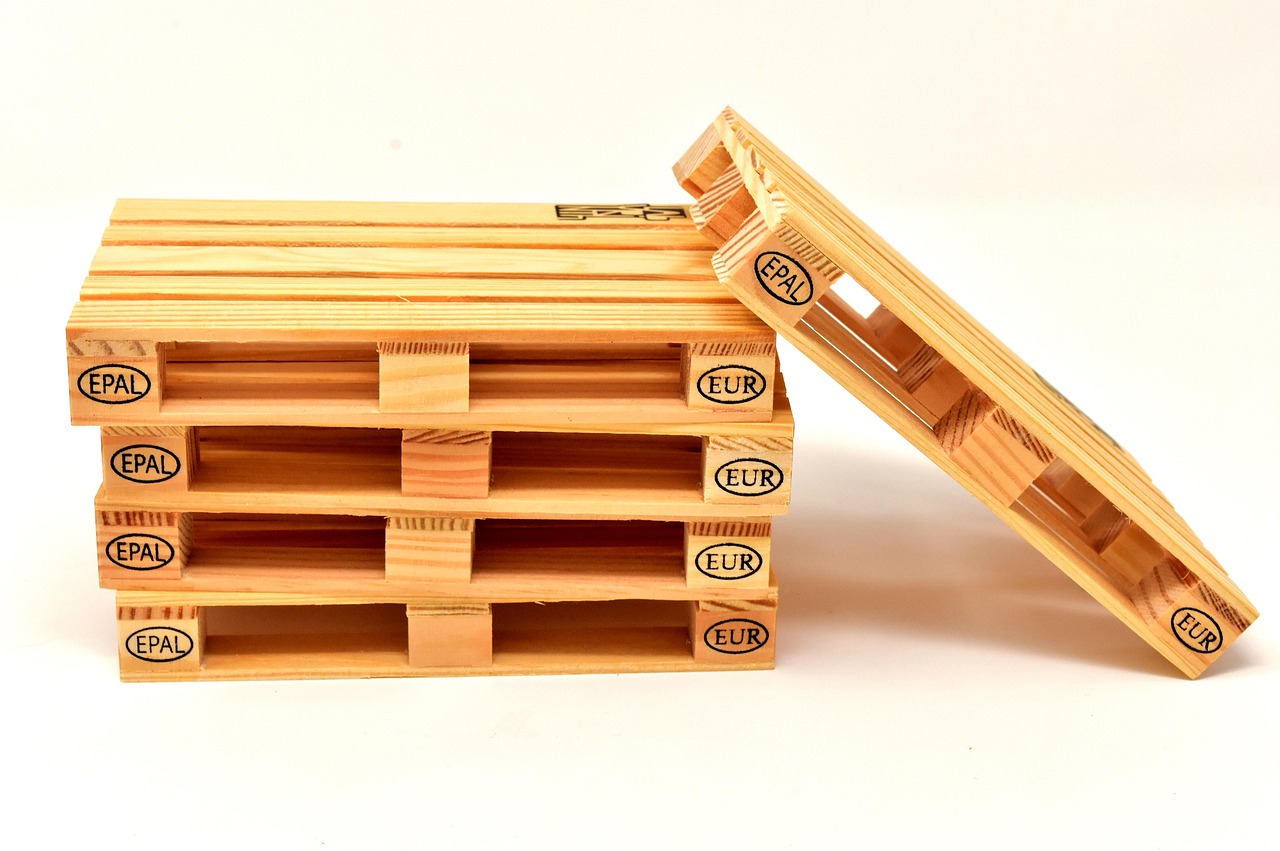Wooden pallets are essential in many industries for shipping, storage, and transport. Their durability and versatility make them a preferred choice for businesses looking to move goods efficiently. The market includes manufacturers who specialize in custom designs and various pallet types to meet specific logistical needs.
A reliable wooden pallet manufacturer provides high-quality products tailored to customer specifications, ensuring durability, compliance with industry standards, and cost-effectiveness. These manufacturers often offer options such as new, used, recycled, and heat-treated pallets suitable for local and international use.
Manufacturers operate across different regions, focusing on precision, customization, and fast delivery. Their expertise helps companies maintain smooth supply chains by offering solutions that combine quality with durability.
Overview of Wooden Pallets Manufacturers
Wooden pallets manufacturers produce a broad range of pallets tailored to different industries and shipping needs. Their operations focus on precise manufacturing standards and certifications to ensure durability and compliance. Key manufacturers vary by region, with distinct hubs known for production capacity and expertise.
Types of Wooden Pallets Produced
Manufacturers create both standard and custom wooden pallets. Standard pallets follow common sizes such as 48×40 inches, widely used across logistics and retail industries. Custom pallets accommodate specific dimensions or wood types based on the client’s product requirements.
There are also specialty pallets like export pallets, which meet international shipping regulations such as ISPM-15 certification for pest control. Some pallets use hardwood for heavy-duty loads, while others use softwood for lighter cargo. Additionally, manufacturers supply new, repaired, and reused pallets to balance cost and sustainability.
Manufacturing Processes and Standards
Wooden pallet production involves cutting, assembling, and treating wood to enhance strength and prevent infestation. Many manufacturers apply heat treatment or fumigation to comply with ISPM-15 export standards, crucial for international shipping.
Automation is growing in the industry, but skilled craftsmanship remains key for custom designs. Process quality control focuses on wood selection, nail strength, and dimensional accuracy. Sustainable practices, such as using recycled wood and managing forest resources, are increasingly integrated.
Key Industry Players
Leading manufacturers include regional specialists and larger firms serving multiple industries. Companies like Advance Lumber & Pallet focus on sustainable, high-quality pallets. Others, such as Pine Products Limited in the UK, produce tens of thousands of pallets weekly, highlighting the scale of operations.
Some suppliers serve niche markets like electronics, pharmaceuticals, and e-commerce, emphasizing product protection and logistic efficiency. Woodbridge Pallet, notable in Canada, offers both new and used pallets catering to shipping and storage demands.
Regional Production Hubs
North America and Europe are prominent centers of wooden pallet manufacturing. In the United States and Canada, production supports industries including retail, logistics, and food and beverage. Facilities often emphasize customized pallets to meet diverse client needs.
In the UK, regions like Cheshire house major pallet factories with high output volumes and strict quality control. Asia and other parts of Europe also contribute to global supply chains, producing pallets for both domestic use and export. Each region adapts to local timber availability and regulatory requirements.
Selecting the Right Wooden Pallets Manufacturer
Choosing a wooden pallets manufacturer requires attention to several critical factors that affect the quality, suitability, and environmental impact of the pallets. Key elements to evaluate include product reliability, the ability to meet specific business needs, and responsible production methods.
Quality Assurance and Certifications
Quality assurance ensures that pallets meet durability and safety standards. Reliable manufacturers comply with industry regulations such as ISPM-15, which is essential for international shipping to prevent pest contamination.
They usually implement strict quality control processes, including material inspection and load testing, to guarantee the pallets can support the specified weight capacity. Certifications from recognized bodies provide confidence in the manufacturer’s consistency and adherence to standards.
Businesses should request documentation on quality control procedures and certification status before committing to a supplier. This prevents issues related to pallet failure or non-compliance during transit.
Customization Options
Customization is crucial for businesses with unique logistics demands. Reputable manufacturers offer tailored solutions in dimensions, wood type, and design to match specific cargo requirements.
Options often include reinforced pallets for heavier loads, heat treatment for export, or specialized dimensions to fit racking systems. Some suppliers also provide branding options, such as stamped logos, which help with inventory tracking and brand visibility.
Choosing a supplier that offers flexible customization ensures pallets integrate seamlessly into the client’s existing supply chain and warehouse setup, optimizing operational efficiency.
Sustainability Practices
Sustainability is increasingly important in pallet manufacturing. Responsible manufacturers source wood from certified sustainable forests and implement waste-reducing processes.
Many follow environmental standards like FSC or PEFC certification to confirm wood origin and responsible forestry management. They may also offer pallets made from reclaimed wood or use eco-friendly treatments.
Evaluating a manufacturer’s sustainability practices helps companies reduce their environmental footprint and meet corporate social responsibility goals. It also aligns with growing regulatory and consumer expectations around sustainable supply chains.








